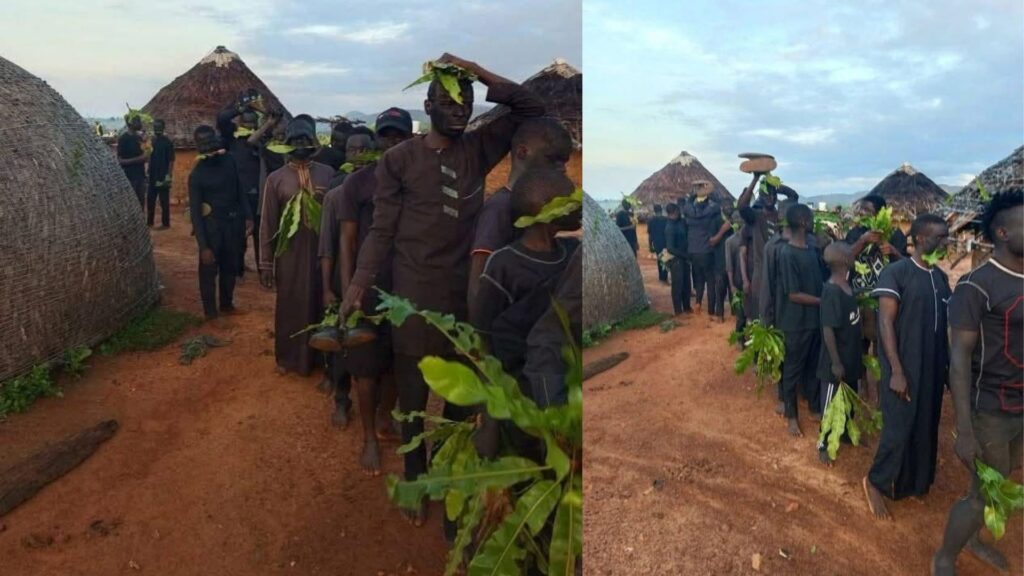The Protest March & Its Symbolism
In Southern Kaduna, farmers — largely women — once more took to the streets, protesting recurrent attacks by herders on lives and farmlands.
The rally began in several villages and culminated at the palace of the Chief of Koro, His Highness Yohanna Akaito, in Kagarko LGA.
Protesters wore black and carried leaves — symbols of mourning and suffering — to dramatize the depth of their losses. Many walked barefoot.
Placards bore messages like “We Are Farmers, Not Soldiers” and “Protect Our Lives and Lands.”
The Broader Conflict & Background
The protests must be placed within the broader context of Southern Kaduna’s volatile security environment.
The region has long borne the brunt of communal violence, land disputes, and clashes between indigenous farmers and pastoralists.
Some human rights observers have even characterized parts of the crisis as genocide of minority groups.
In Nigeria’s recent history, Southern Kaduna has seen mass displacements, village burnings, and cycles of revenge attacks — intensifying tensions over land, grazing rights, and identity.
What the Protestors Demand
- Immediate protection: military or police presence in hotspot villages
- Compensation and restoration: repair of destroyed farmlands, renovation of homes
- Dialogue and conflict resolution: establishment of local peace committees
- Accountability: arrest and prosecution of perpetrators
Reactions & Government Response
As of now, official responses have been muted.
Advocates and civil society groups have urged the federal and Kaduna State governments to declare an emergency in the affected zones.
It remains to be seen whether security deployments, mediation efforts, or new policies will offer relief to communities under siege.
Insights from the LJE National Conference on Farmers–Herders Crisis
At the Leadership Hub for Justice and Economic Advancement (LJE) National Conference, held on September 30 and October 1, 2025, in Abuja, experts and stakeholders discussed lasting solutions to the escalating farmers–herders conflict nationwide.
Key takeaways from the conference offer important pathways for addressing the crisis unfolding in Southern Kaduna:
- Strengthen Community Dialogue Platforms: Encourage the creation of grassroots peace committees that include farmers, herders, traditional leaders, women, and youth to foster trust and reconciliation.
- Invest in Rural Infrastructure: Develop roads, irrigation systems, and local markets to reduce competition for scarce land resources.
- Establish Enforceable Grazing and Farming Policies: Review existing land use laws to create clear boundaries and fair resource-sharing mechanisms.
- Enhance Local Security Frameworks: Support community policing and early-warning systems for rapid response to emerging threats.
- Empower Women and Youth: Ensure that those most affected — especially women farmers — are active participants in peacebuilding and policy dialogue.
The Way Forward
Southern Kaduna’s pain reflects a national crisis that demands urgent action, empathy, and political will.
Building sustainable peace requires collaboration between government institutions, traditional rulers, civil society, and community leaders — aligning with the national consensus reached at the LJE National Conference.
As Nigeria continues to confront this challenge, the hope is that dialogue and justice will finally triumph over violence and fear.

